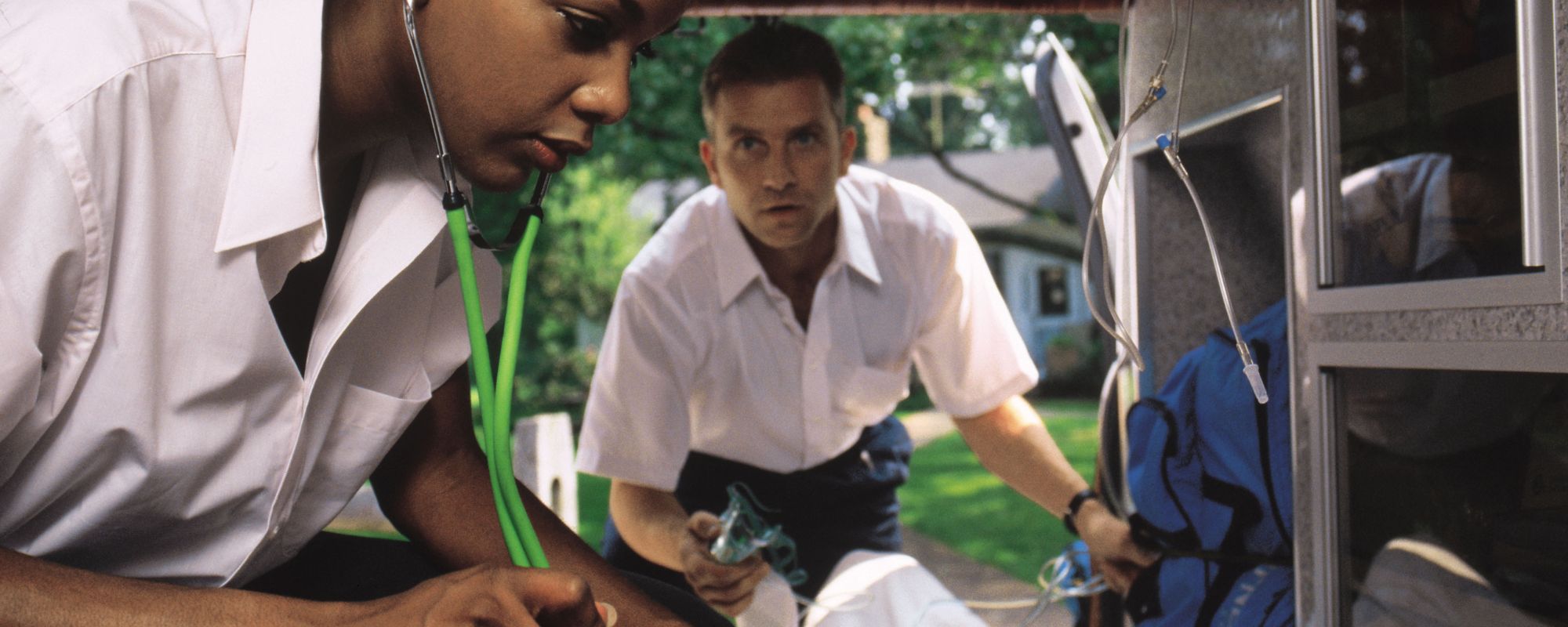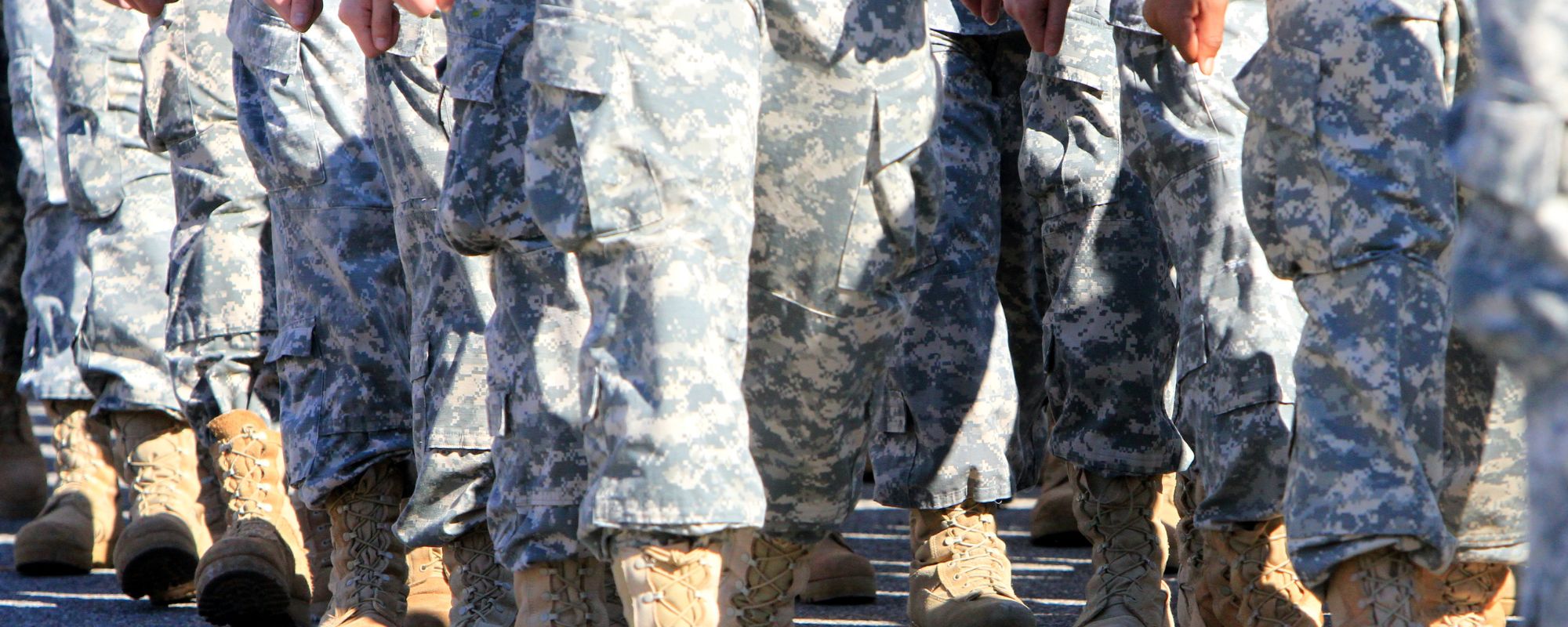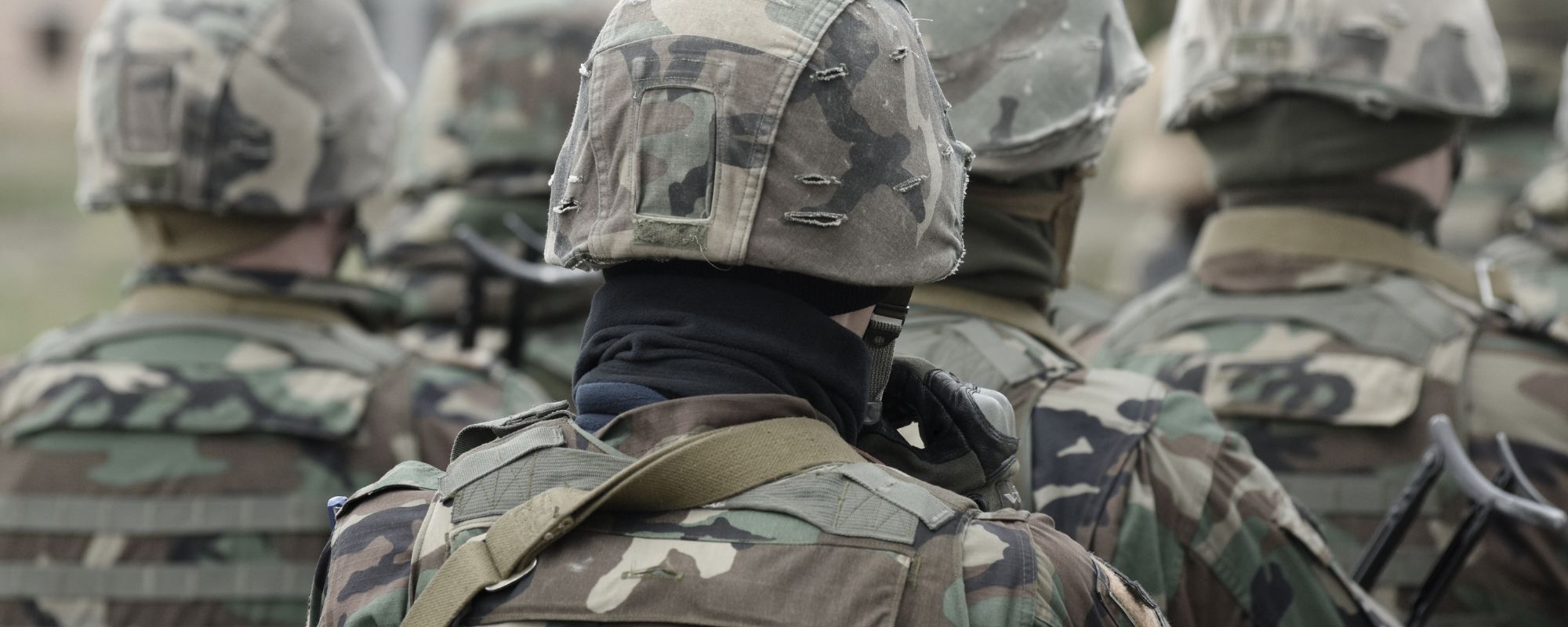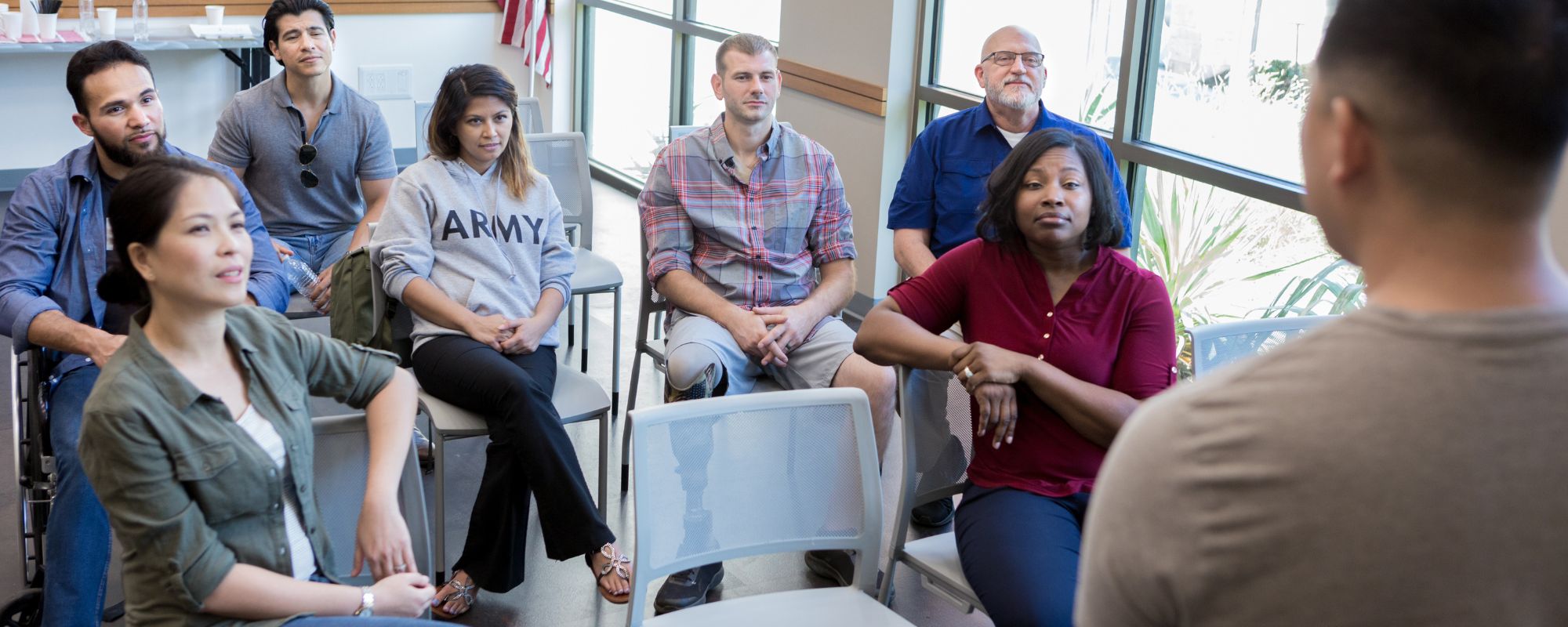Key Takeaways:
-
Non-combat PTSD is real and serious — PTSD isn’t limited to battlefield experiences; veterans and first responders can develop PTSD from non-combat trauma like accidents, natural disasters, repeated exposure to critical incidents, or moral injury.
-
First responders face high risk — repeated exposure to human suffering, violence, and emergencies in roles like EMS, policing, and firefighting can accumulate trauma that leads to PTSD symptoms similar to those seen in combat veterans.
-
Trauma symptoms include classic PTSD signs — nightmares, hypervigilance, flashbacks, avoidance, emotional numbness, and anxiety can stem from non-combat experiences and significantly impact daily functioning and well-being.
-
Specialized, trauma-informed treatment is crucial — tailored care that recognizes non-combat trauma, addresses co-occurring issues like substance use, and provides peer support helps veterans and first responders heal and regain control of their lives.
Question:
What is non-combat PTSD and who offers treatment for it?
Answer:
Post-traumatic stress disorder (PTSD) can arise from a wide range of traumatic experiences beyond direct combat. While battlefield exposure is a well-known cause of PTSD, many military veterans and first responders develop PTSD from non-combat incidents such as natural disasters, severe injuries or deaths they’ve witnessed, accumulated stress from repeated critical incidents, and moral injuries that conflict with personal values.
First responders — including EMTs, firefighters, law enforcement officers, and dispatchers — are especially vulnerable to non-combat PTSD due to their frequent exposure to harrowing events while protecting others. Over time, these experiences can lead to classic PTSD symptoms such as nightmares, hypervigilance, intrusive memories, avoidance, and emotional numbing. These symptoms can disrupt relationships, work life, and emotional health.
The article emphasizes that trauma is subjective: what overwhelms one person’s ability to cope may not affect another the same way. It also highlights that untreated PTSD often co-occurs with substance use, anxiety, and depression, requiring specialized, trauma-informed treatment tailored to the unique backgrounds of veterans and first responders. Programs that validate experiences, integrate peer support, and address both PTSD and co-occurring conditions are essential steps toward healing.
Introduction to PTSD
When most people think of Post-Traumatic Stress Disorder (PTSD), they imagine combat veterans returning from the front lines of war. While combat exposure is a well-known cause of PTSD, it’s not the only one. In reality, non-combat PTSD is a very real and serious condition that affects countless military veterans and first responders who may never have seen a battlefield, but who have faced trauma just as intense.
At Aliya Veterans, we recognize that trauma takes many forms. Our program provides dedicated support for both combat and non-combat PTSD, helping veterans and first responders find healing from the emotional wounds that don’t always leave visible scars.
Understanding Non-Combat PTSD
Similarly, first responders—including EMTs, firefighters, law enforcement officers, and dispatchers—are repeatedly exposed to critical incidents like mass casualty events, child abuse cases, and gruesome accident scenes. Over time, this exposure can take a serious toll, triggering the same PTSD symptoms seen in combat veterans: nightmares, hypervigilance, emotional numbness, flashbacks, and anxiety.
Trauma Has Many Root Causes
One of the biggest myths surrounding PTSD is that it only comes from combat. The truth is, trauma is subjective. What deeply affects one person may not affect another in the same way. The common thread is that the experience overwhelms a person’s ability to cope, leaving a lasting psychological impact.
Here are some non-combat causes of PTSD commonly seen among veterans and first responders:
- Witnessing death or severe injury of fellow service members or civilians
- Natural disasters or humanitarian missions with mass suffering
- Repeated exposure to violence or human suffering (especially in first responder roles)
- Moral injury or witnessing injury—when actions in service conflict deeply with laws, or personal values and beliefs, such as military sexual assault or sexual trauma.
At Aliya Veterans, we believe trauma is valid, no matter its source. There is no one thing to cause PTSD, so we help those who serve in combat or elsewhere for our nation.
Get confidential help from our addiction and mental health treatment facilities located across the United States. Call to join one of our quality programs today!
Speak With Our Admissions Team
PTSD in First Responders: A Hidden Epidemic
First responders are among the most affected by non-combat PTSD, yet their experiences are often overlooked. Day after day, they rush into danger to protect others, often at the expense of their own mental health. Over time, repeated exposure to traumatic events can lead to emotional exhaustion, substance use, and full-blown PTSD.
Many first responders avoid seeking help due to fear of stigma, job security concerns, or the “tough it out” culture within their fields. But untreated PTSD doesn’t fade with time—it festers. Without intervention, it can lead to worsening symptoms in people suffering from PTSD, alcohol abuse, depression, and even suicidal thoughts.
Why Military and First Responder PTSD Deserves Specialized Treatment
Military veterans and first responders experience trauma in unique ways. Their trauma is often layered, rooted in duty, loyalty, and service to others. Many also suffer from co-occurring disorders such as alcohol dependency, anxiety, or depression. That’s why one-size-fits-all mental health treatment rarely works.
At Aliya Veterans, we offer trauma-informed care that’s built specifically for those who serve. Our program focuses on:
- Identifying and validating non-combat trauma
- Treating co-occurring PTSD and substance abuse
- Helping patients develop healthy coping strategies
- Providing peer support among fellow veterans and responders
- Building trust and a safe space for healing
We believe healing begins when individuals feel seen, not just for what they’ve been through, but for who they are.
Seeking Help Is a Sign of Strength
It’s important to remember that PTSD isn’t a sign of weakness. It’s a natural response to unnatural events, and seeking help takes courage. Whether you’re a combat veteran, a first responder, or a military service member who never saw direct combat, your pain is real, and recovery is possible.
If you’re struggling with flashbacks, anger, sleep issues, or alcohol use as a way to cope, know that you’re not alone. There are people who understand what you’ve been through and are ready to help you heal.
Looking for quality treatment for substance abuse and mental health that’s also affordable? Aliya Veterans treatment facilities accept most major insurance providers. Get a free insurance benefits check now!
Check Your Coverage
Non-Combat PTSD Stressors and VA Disability Support
For veterans who have been diagnosed with PTSD, it’s important to know that VA disability benefits may be available, even if the trauma is not linked to direct combat. The Department of Veterans Affairs recognizes that mental health conditions like posttraumatic stress disorder (PTSD) can arise from a wide range of experiences during military service. Veterans can file a claim and submit supporting evidence to show that a PTSD stressor, even a noncombat stressor, contributed to their current mental health condition.
Common symptoms of PTSD include nightmares, hypervigilance, avoidance, intrusive thoughts, and emotional numbing. These symptoms can be especially severe when coupled with substance abuse, which many veterans use as a way to self-medicate. Conditions such as traumatic brain injury (TBI) can further complicate a PTSD diagnosis, making professional assessment and integrated treatment critical.
The crisis of untreated PTSD and suicide continues to affect fellow veterans across the country. That’s why nationwide trauma recovery programs like Aliya Veterans are so essential. We help veterans navigate both the emotional toll of PTSD and the bureaucratic systems surrounding disability benefits and care. Our team supports patients not only in healing but also in understanding their rights and accessing the benefits they’ve earned.
Find Your Way Forward at Aliya Veterans
At Aliya Veterans, we specialize in helping military and first responder communities overcome both combat and non-combat PTSD. Our compassionate team of clinicians, many of whom have firsthand experience in military or emergency service roles, provides research-based care that respects your story and supports your future.
You’ve spent your life protecting others—now it’s time to protect your well-being. Reach out to Aliya Veterans today and take the first step toward healing.


- Pill Mills: What Veterans Need to Know About a Dangerous Practice - January 28, 2026
- Trauma and Addiction: Understanding the Connection and Paths to Healing - January 27, 2026
- Rehab Centers for Veterans: Healing from PTSD and Addiction - January 26, 2026













